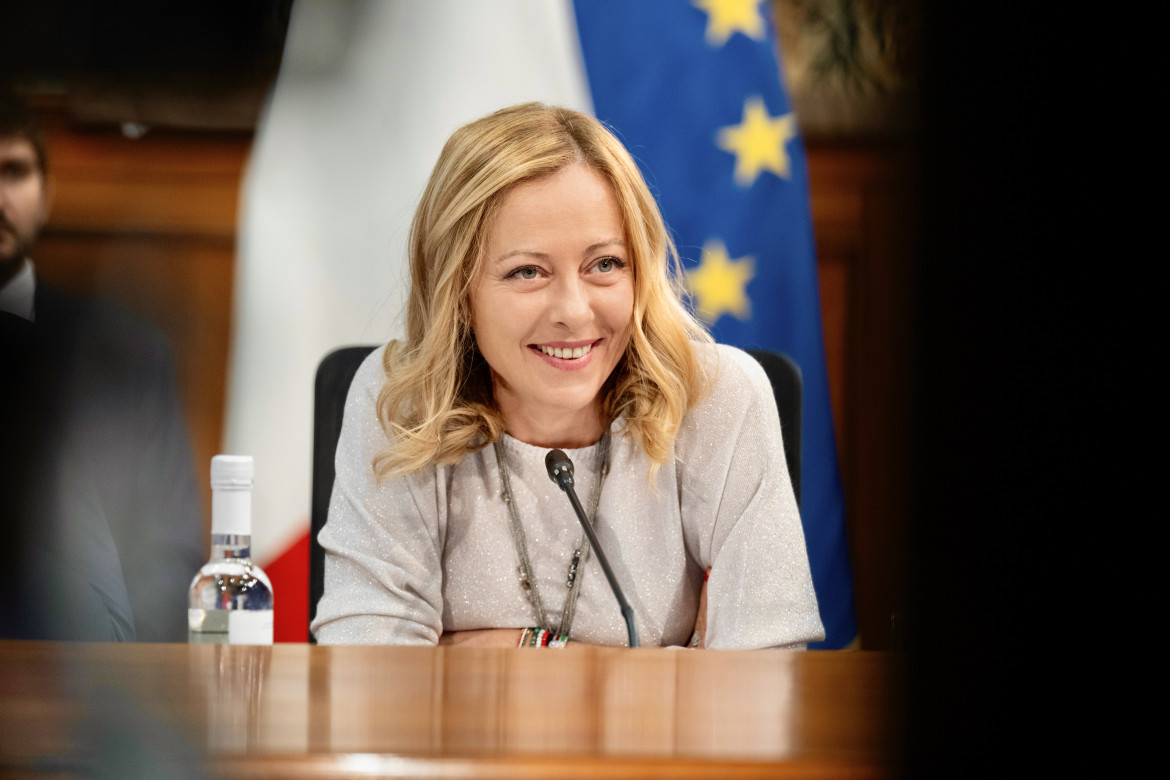Analysis
Meloni wants to be the hinge between Europe and Trump
Draghi is convinced that it is possible to reach an increase in military spending up to 2 percent of GDP while respecting the Stability Pact. Meloni doesn’t think so.

At the top of the agenda of the European Council meeting in Budapest was the Draghi report on competitiveness, which was already presented to the European Parliament in September. The text is the same, but the context has changed dramatically with Trump's election.
Two months ago, the red alert sounded by Draghi was merely loud; now it is deafening. Europe must prepare a response to the likely policies of the new U.S. administration, and it must do so under the worst conditions: effectively headless, with the leading countries, Germany and France, both without stable governments. The Italian premier heads the government of the third-largest country, but number one in terms of stability, an accolade she will share with Trump's future U.S. administration among the G7. For her, the risks of the moment also bring what may be a one-of-a-kind opportunity. Having worked through the disappointment of Kamala Harris’s defeat (whom she actually wanted to win), she is repositioning herself to try to seize it.
Her plan is to do so behind closed doors, offering herself for the role of “hinge” in the difficult negotiations with the U.S. on tariffs, military spending and Ukraine. Her Conservatives group in the European Parliament, somewhere in-between the radical right and the EPP, can go further than Orban and his Patriots outcasts, although it is the latter who enjoy the new president's confidence.
With her colleagues, Meloni has been clear: “It would be an unforgivable mistake to be afraid of Trump. We need to dialogue, to build relationships. The real issue is the challenges we face, not Trump.” Among those relationships, she has built one that may prove crucial: with Elon Musk, whom she believes “can and should be an interlocutor.”
The leader of the Italian right has no intention of dying on the hill of hardline sovereignist positions. On the contrary, she intends to open a channel of communication and negotiation on tariffs with the U.S. president as a European and pro-European leader. The main difficulty is Ukraine. She has been the closest-aligned with Kyiv among Western European leaders, and she is unwilling to budge much, reiterating that “as long as there is war, we are with Ukraine.” Nevertheless, one must pay attention to the nuances: “If today we are moving towards a peace scenario, that is because of the extraordinary courage of the Ukrainians and because the West has supported Ukraine,” she said, in the tone of one who thinks the bloody conflict is nevertheless coming to an end.
The Trump era is a game-changer also in terms of the profound transformation the Union needs. Meloni, firmly in the Draghi camp, aims above all to exploit the very delicate phase we are entering to push the Union in the direction indicated by the Draghi Report. She even coined a Kennedy-esque slogan: “Don't ask what the U.S. can do for you, ask what Europe should do for itself.” This involves giving individual countries the tools to achieve the ambitious goals that the Report sets out. In short: investment, investment, investment.
There’s only one point on which the Italian Prime Minister disagrees with her predecessor. Draghi is convinced that it is possible to reach an increase in military spending up to 2 percent of GDP while respecting the Stability Pact. Meloni doesn’t think so. She’s not against the increase per se, quite the contrary. But “then there’s the issue of what can be done, and the resources must be identified, because I am not willing to take it out on the Italian citizens.” The Stability Pact must be revised. The goal is clear: exclude military spending, and not only. This is what she is talking about when hinting at the “necessary resources.” She also couldn’t help giving Albania a passing mention. The author of the protocol with Tirana stressed that she had heard universal concern from the other EU leaders, because saying that there are no safe countries “de facto undermines any possibility of managing immigration and stopping illegal immigration. I received a lot of solidarity on this issue.”
The shadow of the U.S. election result also made it into her daily barbs with Elly Schlein. After Meloni joked about feeling ill but still going to Budapest to do her job because she “didn’t have union rights,” her statement was branded by the PD leader as “a debasement of union rights.” In response, Giorgia stressed that it was just a “light” joke, then vowed to defend union rights “much more than the caviar left.”
The usual political entertainment. In the end, however, Meloni went somewhere she hadn’t gone before: “I hope the left can identify some serious issues while waiting to find an identity that will allow it to stand with the people.” It was the dismissive tone of the general of an army that just thoroughly defeated the opposing force – not only in the U.S., but throughout the West.
Originally published at https://ilmanifesto.it/lequilibrismo-di-meloni-europeista-e-trumpiana on 2024-11-09
